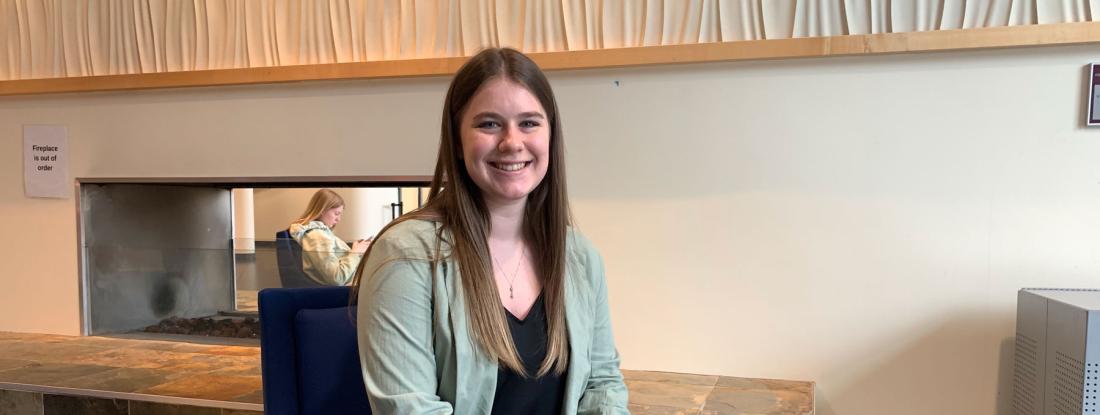Meet Gabby Cook '23
neuroscience and public health

This neuroscience major blends brain and society in her studies of health
When Gabby Cook '23 began imagining her college career as a high schooler, she didn't even know that the field she'd learn to love, existed.
"I'd always been interested in psychology, but I hadn't known that neuroscience existed before I started looking at college programs," said Cook, who's studied neuroscience and public health sciences at Hamline University.
Cook's double major provides her with a unique, interdisciplinary perspective on health and human behavior.
"Neuroscience looks at why people do the things they do from a biological standpoint—what happens in the body to create certain things. It really lends itself to a more medical standpoint," Cook explained. "Public health looks more macroscopically at a population level and preventative health. It's two really cool perspectives on health and healthcare, and it's important to be able to combine those two viewpoints."
Cook found an engaging home in the intersection of her degrees, especially in her classes like Neurological Diseases, Disorders, and Society, which combined her interests.
"It provides that science background and also zooms out to look at the societal impact," Cook said. "The class wrapped up with an independent project using chick embryos to study the early development of embryos, and we wrote research proposals based on our classwork that actually led to me doing research over the summer."
I felt so confident when I left undergrad and started applying to lab jobs since I knew what it looked like on a day-to-day basis.
Cook went into her summer research with some nerves, she said, but quickly found her footing. Across the 10 weeks of research, working in the lab five days a week, she became adept at navigating the daily rhythms of lab work and the scientific process.
"I was stressing myself out more than I needed to because I wasn't sure where to start, but it was truly as simple as talking to my professors about what I can do and what I'm interested in," Cook said. "It was really cool to be in the lab day-to-day, organizing what it is I needed to accomplish in order to get to my broader goal. I felt so confident when I left undergrad and started applying to lab jobs since I knew what it looked like on a day-to-day basis."
There's a huge amount of potential in the world for someone with Cook's interdisciplinary experience. With her summer research experience under her belt, Cook became a medical assistant at a migraine clinic in Colorado. Recently, she has begun applying to physician assistant (PA) programs.
Highlights
Discover Hamline's neuroscience degree, explore the public health science department, and learn about summer research opportunities at Hamline.